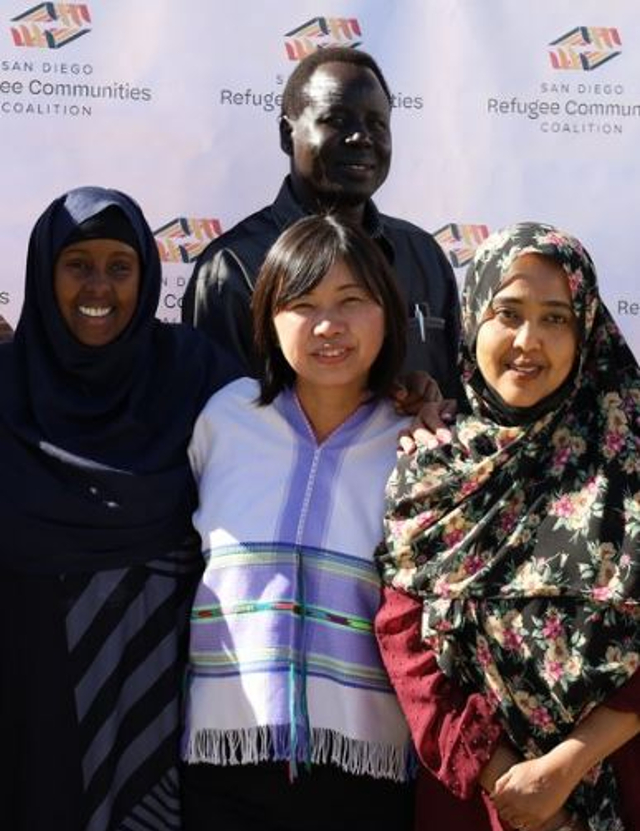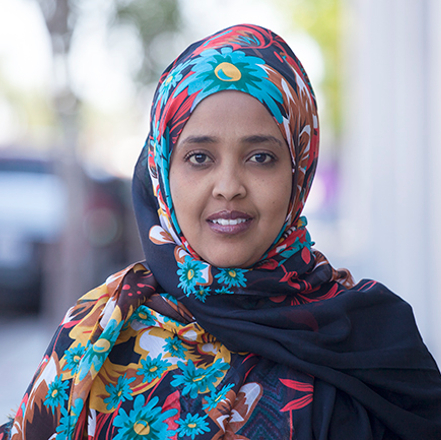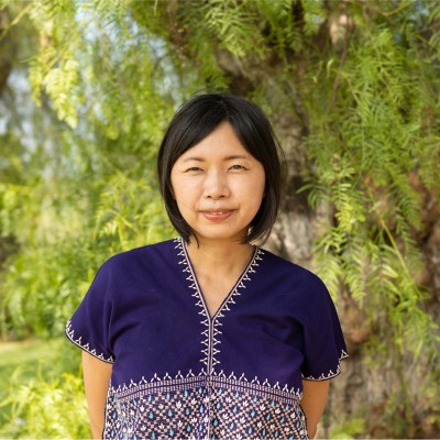Supporting Refugee Organizations in Providing Culturally-Appropriate COVID-19 Information and Resources
Program
-
Focus Areas
Communicable Disease Prevention, Healthy Communities -
Expertise
Coalition & Network Building, Health Education & Promotion -
Strategic Initiatives
COVID-19, Vaccine Access & Equity

There are only two markets that sell the Ethiopian staple injera bread, a sourdough flatbread that is served for practically every meal, in all of San Diego County. So when the COVID-19 pandemic struck California, the Refugee Assistance Center saw injera as an opportunity to reach its community members. Using their personal relationships with the two stores’ owners, staff set up tables in the markets to inform people about COVID-19 prevention, provide vaccine information, and help connect people with assistance programs.
“That’s how they reached 100% of the Ethiopian community—through bread,” recalls Valerie Nash, senior development consultant to the San Diego Refugee Communities Coalition (SDRCC). “No one else would’ve known that would be the way. The county would never have known that, a big organization would never have known that. The owner of those markets would never have said yes to anybody else.”
The Refugee Assistance Center is part of the SDRCC, a collective of 12 ethnic community-based organizations (ECBOs). ECBOs are led by current and former refugees and immigrants, primarily for the advancement of refugees. As a result, staff of ECBOs create deeply connected relationships as they serve members in their community while living in the same neighborhoods, worshipping in the same mosques and churches, and shopping at the same stores.
Trauma-informed outreach & flexible funding
Using their expertise, ECBOs find ways to connect with their communities through strategies that make the most sense for their priority populations. For instance, the Haitian community health workers (CHWs) of the Haitian Bridge Alliance do more in-person outreach in trusted spaces, rather than digital communications or marketing, because of the community’s hesitancy towards technology. On the contrary, Karen and Burmese CHWs use Facebook Live to educate members because the application is quite popular in their community, as it is the main way to connect with relatives and friends in the refugee camps in Burma.
With flexible funding from Together Toward Health, the SDRCC is able to build trust by supporting their community members in meeting critical needs, including, business coaching, and childcare supplies. Community health workers help people in various ways, from getting their driver’s license to navigating the immigration system.

As ethnic community-based organizations, we serve our communities holistically, regardless of the need. This is why the flexibility of these grants have been so critical for us, because when our people come to us for help, we will never say it’s not in our scope of work.Amina Sheik Mohamed, founding director, Refugee Health Unit
The joys and benefits of a true coalition
The collaborative model of the coalition, which was strengthened through funding, has been a game-changer for the small ethnic community-based organizations in the SDRCC. The group is in constant communication, meeting weekly or daily to share expertise, opportunities, and challenges in one central place. By pooling together resources and knowledge, the groups are able to effectively come up with solutions in real time. They collaborate on a weekly newsletter, which shares a message of the week aimed to prevent misinformation and inform the community. The newsletter is then customized and disseminated in slightly different ways by the partners, including translation into different languages and changing images to better relate to specific groups. For small organizations with limited capacity, the ability to work together and tap into shared expertise is invaluable.
For example, the latest round of TTH funding enabled the coalition to bring in an Afghan-serving ECBO, which will be focused on reaching out and providing vaccinations to incoming refugees from Afghanistan. The Deputy Director of that organization, Mumtaz Momand, commented that in addition to funding, the organization also received crucial operational support from fellow leaders at the coalition.

I think other organizations, other cities, all over the state can use this collective way of working. We need this kind of collective approach to build the capacity of smaller community-based organizations and amplify the voices of the refugee community.Nao Kabashima, executive director, Karen Organization of San Diego
Read more about their work with refugee communities in San Diego on the Together Toward Health website.
Work With Us
You change the world. We do the rest. Explore fiscal sponsorship at PHI.
Support Us
Together, we can accelerate our response to public health’s most critical issues.
Find Employment
Begin your career at the Public Health Institute.
